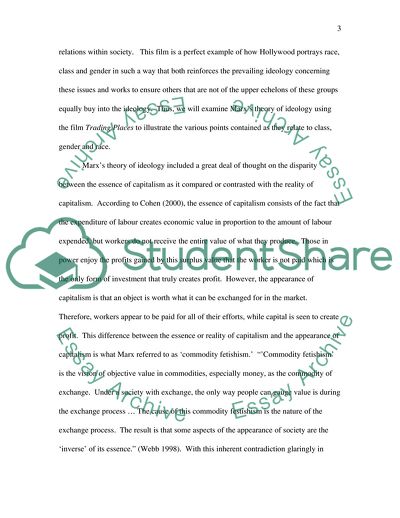Cite this document
(Trading Places: Supporting Marxs Commodity Fetishism Case Study, n.d.)
Trading Places: Supporting Marxs Commodity Fetishism Case Study. Retrieved from https://studentshare.org/social-science/1703283-discourse-and-representation-explore-the-representation-of-race-class-or-gender-in-one-contemporary-media-text
Trading Places: Supporting Marxs Commodity Fetishism Case Study. Retrieved from https://studentshare.org/social-science/1703283-discourse-and-representation-explore-the-representation-of-race-class-or-gender-in-one-contemporary-media-text
(Trading Places: Supporting Marxs Commodity Fetishism Case Study)
Trading Places: Supporting Marxs Commodity Fetishism Case Study. https://studentshare.org/social-science/1703283-discourse-and-representation-explore-the-representation-of-race-class-or-gender-in-one-contemporary-media-text.
Trading Places: Supporting Marxs Commodity Fetishism Case Study. https://studentshare.org/social-science/1703283-discourse-and-representation-explore-the-representation-of-race-class-or-gender-in-one-contemporary-media-text.
“Trading Places: Supporting Marxs Commodity Fetishism Case Study”. https://studentshare.org/social-science/1703283-discourse-and-representation-explore-the-representation-of-race-class-or-gender-in-one-contemporary-media-text.


